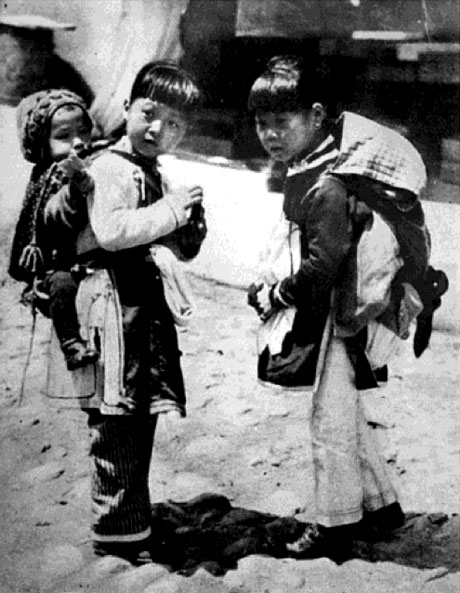Girls’ Labor and Leisure in the Progressive Era
“Mui Tsai” (1905)
Annotation
Urban reformers labeled working-class girls who took care of younger siblings “Little Mothers.” While the title essentialized girls and sentimentalized their labor, girls of all races and ethnicities groused about their burdens and griped about their brothers’ freedom from childcare obligations. In Cincinnati, OH, African American girls became the focus of reformers who sought to instruct these future mothers in better baby care, according to an article published in The Crisis, the official publication of the NAACP.
Although girls in Hispanic communities went largely unnoticed by reformers, Chinese domestic servants (mui tsai) who cared for kids, cleaned houses, and ran errands came to the attention of Presbyterian missionaries alarmed by the sexual slavery of Chinese girls.

Online Archive of California, Bancroft Library, University of California, Berkeley, Roy D. Graves Pictorial Collection, 1905.17000 v. 29:34. “Chinese Children.” Accessed September 26, 2012.
